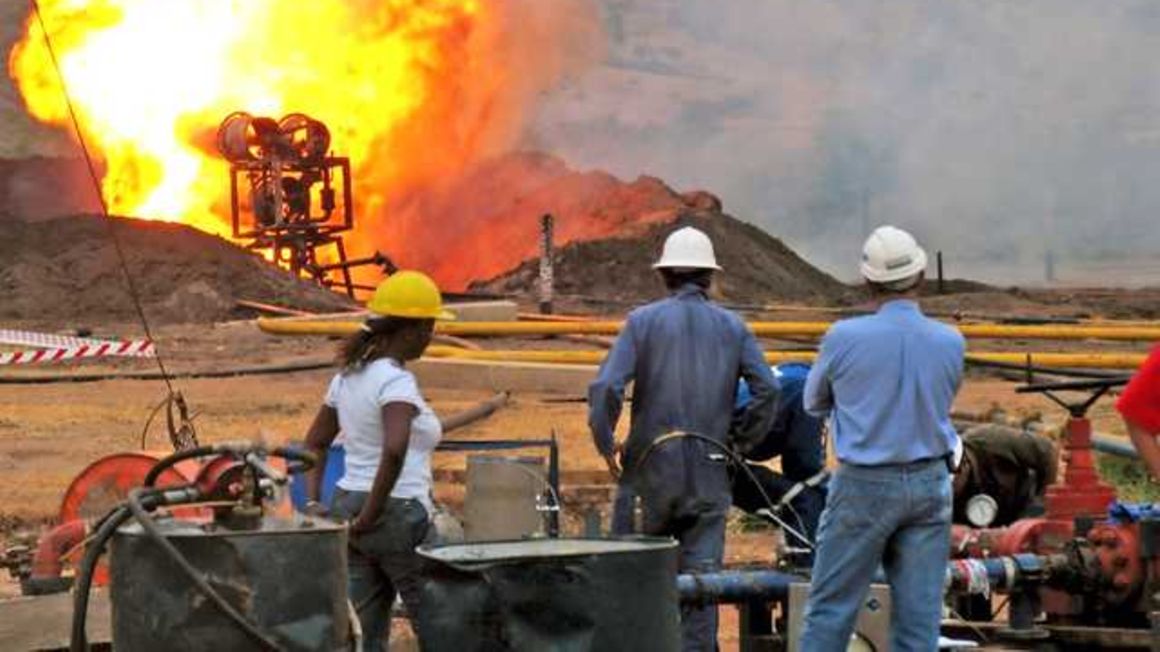Workers undertake the first flaring test in Hoima district in western Uganda. An oil pipeline will be built from there to Tanga. PHOTO | REUTERS The petitioners, led by Inclusive Development International, accuse the World Bank of giving “backdoor support” to the infrastructure project that will transport crude from Hoima in Uganda to the international markets through the Tanzanian port of Tanga.
The projects are being developed by French oil major TotalEnergies, CNOOC of China and the Uganda National Oil Company.
Activists criticise the compensation of project-affected persons as flawed, arguing that it “has caused enormous pain and suffering” to communities, citing those relocated due to the Kabaale oil refinery spending nearly six years of restricted access to their land before being moved to a sterile, camp-like resettlement site.
Human rights and climate lobbies are putting the World Bank Group on the spot over what they term as a breach of its own policies to help companies insure the East African Crude Oil Pipeline project.
The petitioners, led by Inclusive Development International, accuse the World Bank of giving “backdoor support” to the infrastructure project that will transport crude from Hoima in Uganda to the international markets through the Tanzanian port of Tanga. The project is deemed to be risky to the environment and local communities.
On October 14, three organisations filed a complaint to the World Bank, detailing how the institution, through its private sector lending arm, the International Finance Corporation (IFC), invested in Britam Holdings, one of the firms lined up to insure the oil pipeline and refinery.
The complaint, filed to Janine Ferretti, the World Bank’s vice president and head of its Compliance Advisor Ombudsman (CAO), claims that the IFC has supported environmentally risky projects through a $35 million investment in Britam. No vetting
When contacted, the IFC said it ceased directly financing new upstream oil and gas projects in 2019, but conceded it does not vet projects in which its funding to clients is used to ascertain if they meet the Bank’s commitment to sustainable development, as well as environmental and social policies.
“IFC does not clear due diligence conducted on individual sub-projects that a financial intermediary may support,” said Kristina Nwazota, IFC head of communications, Africa and Middle East in an e-mailed response to The EastAfrican .
According to CAO, Britam will know on November 3 or December 1 if its shareholder breached policy. If so, this would require a […]
